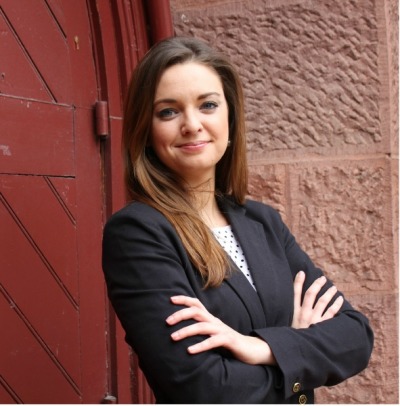Liberal Evangelicalism In New York City

Thousands of tourists, complete with fanny packs and crumpled city maps, walk in and out of New York City's monumental churches along their travel route. Their quick trips often miss the history behind the city's oldest church buildings. A new book tells the story of New York City's complicated history of religious transformation among Evangelicalism.
On Monday, Dr. Matthew Bowman, author and instructor of history at Bowling Green State University, joined Dr. Albert Mohler's Thinking in Public podcast. Looking at Bowman's new book The Urban Pulpit: New York City and the Fate of Liberal Evangelicalism, Bowman and Mohler discussed New York City's nineteenth century pulpit problems and transformations that took place in the city and broader culture through the twenty-first century.
"I think so much that has been written about Protestant Americanism in the twenty-first century falls into the trap of being really a political history told simply through a religious lens," said Bowman. "I wanted to get at what it meant to these people to be religious. What it meant to them to worship. What it meant for them to be Christians in the world, New York City, as they found themselves."
While studying at Georgetown University, Bowman says he first became interested in New York City's religious history while listening to a sermon by Harry Emerson Fosdick, a famous liberal minister of his day who denied the virgin birth of Christ and His second coming. "In this sermon that Fosdick gave in 1931, it was very much an elegy for fundamentalism," explains Bowman. "Here's Harry Fosdick, the Dean of the Protestant Left of liberal Protestantism in America saying that he envied the fundamentalists. He lambasted his own people whom he called the liberals or the modernists. He criticized them for defining themselves by what they did not believe."
Fascinated by Fosdick's unexpected sermon, Bowman set out to uncover how New York City pastors' theological lines of the late nineteenth century and early twentieth century "were much more blurred on the ground" than the typical liberal vs. fundamentalists camps scholars tend to think they were.
Migration of Protestant Churches
After learning the origins of Bowman's interest in New York City's faith history, Mohler switches gears and focuses on the geographical makeover of the city's Protestant church buildings. Mohler asked, "Why were these churches moving progressively northward in the city?"
"By the mid late nineteenth century, many pastors in New York City felt that they were in a crisis," explained Bowman. "Because early on they believed they had conquered the city. There are all kinds of denominational histories and congregational histories written in the 19th century praising Protestants for making New York an ideal Evangelical location."
However, as Bowman notes, the Evangelical environment changes in the mid-nineteenth century as waves of immigrants including Catholics, Jews, and non-church people move into the city.
"[Protestant Pastors] were finding that the people who are supporting them, the people who are paying their pew rents, the people who are sitting in their pews are moving north to get away from the poverty on the Southern end of Manhattan. To get away from these neighborhoods increasingly unfamiliar to them." Consequently, the old Protestant churches close, often selling to Roman Catholics, and move north to maintain their congregations.
Church and Entertainment Culture
Mohler continued on, shifting the attention to the "threat of the theater" to Evangelical moral culture in New York City. New York's entertainment industry was seen as a threat by both evangelicals who called themselves liberals and fundamentalists, says Bowman. "There is a fear that the Word is being drowned out. It's being drowned out by theater. And many of them see theater as a direct competition – a precise competition- with the pulpit."
Bowman tells the story of John Roach Straton, a popular fundamentalist preacher who called the theater "a great satanic pulpit." The theater is proclaiming morals that Straton and other New York Pastors finds distressing, asserts Bowman. Straton saw the theater "proclaiming a world without Christ."
"Also, I think entertainment culture is a competition to the Bible as well. There is a growing tide of newsprint in this city, newspapers are becoming increasingly popular," says Bowman about New York City's nineteenth century culture onward. "The penny press is rising and is selling many books. So people are not reading the Bible anymore. People are going to the theater instead of the church house. It is a threat to their way of life. One that both liberals and evangelicals fear."
Liberal Evangelical Vigor without Verity
The conversation between Mohler and Bowman begins and ends with the Riverside Church's Harry Emerson Fosdick, as does the book The Urban Pulpit. For Bowman, Fosdick is often characterized as a non-Evangelical but is in fact representative of liberal Evangelicalism, a movement that proves ultimately disastrous.
It's helpful that Mohler rounds out the interview by pointing out, "The bottom line lesson is, as a theologian, you can't have what Fosdick wanted to retain once you have thrown overboard all the doctrine that he explicitly denied.
Mohler continued, "This idea of liberal Evangelicalism is actually very helpful in your book, but at the end of your book it dies more or less. It is extinguished."
"Yes, it starts to fade," replies Bowman. "The story is a tragedy. Because I think it is very hard for somebody like Fosdick. He has so much trouble with his denomination, with the Presbyterians as well…to maintain doctrinal integrity while at the same time trying to maintain what they call liberal evangelicalism."






















